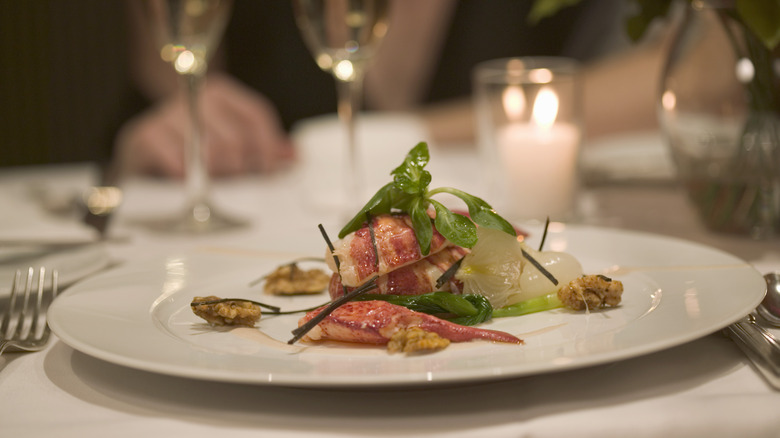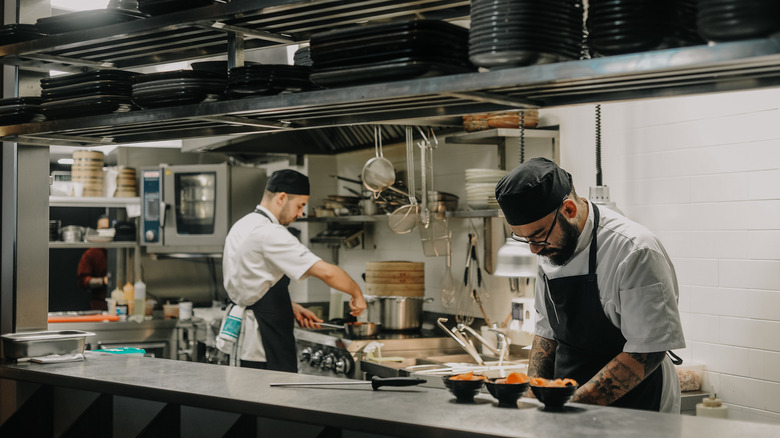A Culinary Director Explains What Happens When You Send Food Back At A Restaurant
Have you ever wondered what happens when you send food back at a restaurant? It's not uncommon and is nothing to be ashamed of. Plus, there are sometimes clear signs you should send a dish back at a restaurant. We recently spoke to the culinary director of Ketchy Shuby, Sean Olnowich, to find out what the general protocol is when food is sent back.
Olnowich stated, "If a dish is sent back, it is re-fired 'on the fly,' meaning to put it in the front of the pack to try to get it out as quickly as possible." The reason for this is that the restaurant doesn't want the person who sent the dish back to just sit at the table watching their companions eat. Let's say you receive gray lobster, a telltale sign your lobster is undercooked, Olnowich will cook the same dish a little longer — but the caveat is that the dish has to have been barely touched.
Olnowich added, "If they ate a good amount of it, and replating that same dish wouldn't look right, I will cook a new one. Regardless, the accompaniments of the dish will always be remade fresh." Now, what happens to the half-eaten dish? Due to food safety, the risk of contamination, and restaurant laws, the restaurant must compost or throw the sent-back half-eaten food in the garbage.
Restaurants must follow food safety protocols whenever a customer sends back a dish
If you're wondering when a restaurant offers a comp for a dish that is sent back, culinary director Sean Olnowich has the answer for you, but it often depends on the situation. He said, "If a steak is simply undercooked and needs to come up one temperature grade, no, I would not comp it." Olnowich would reheat the same dish if it were barely touched. Olnowich added, "If a steak is overcooked and it takes another 15 minutes to get a new steak in front of them, I may comp the steak or send a round of drinks or dessert on the house." He emphasized how the scenario often dictates the restaurant's course of action.
State food sanitation laws may differ, but it is typically illegal to reserve ordered food, even if it were untouched at the table. For instance, if a guest sends a dish back and orders a whole new one, it is illegal for the restaurant to reuse the sent-back dish, sell it to a different customer, repackage it for delivery, or even donate it to charities. A CDC report ties 40% of food poisoning outbreaks to sick workers, so restaurants must follow food safety protocols, including when a customer returns a dish.

